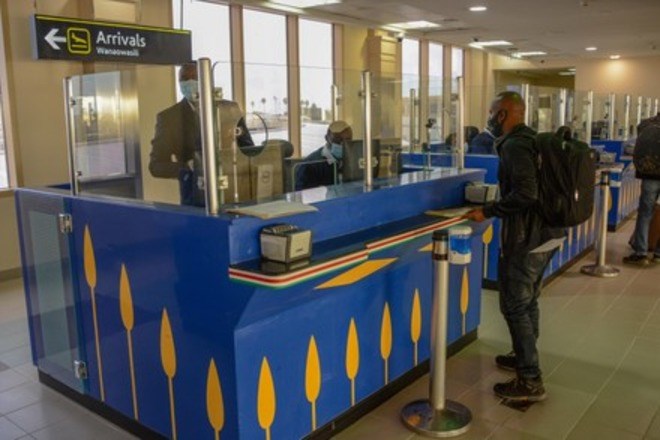
Thursday July 17, 2025

A traveler arrives at Jomo Kenyatta International Airport in Nairobi, Kenya. Somalia and Libya were excluded from Kenya’s new visa-free policy for African countries.
The policy, announced in January and rolled out in phases through July, grants visa-free access to citizens of most African and several Caribbean nations. East African Community (EAC) member states benefit from even longer stays under existing protocols. Somalia, which officially joined the EAC in March 2024 [verify], was left out of the waiver. Libya was also excluded.
advertisements
Civil society groups have echoed those concerns, calling the policy discriminatory and counterproductive. They argue that Kenya’s security concerns could be addressed through targeted screening measures rather than broad-based visa bans. Some also argue that Kenya’s move may weaken the symbolic and practical value of Somalia’s EAC accession, which was meant to promote greater mobility and trade across the region.Although Nairobi has not cited specific threats in recent statements, past attacks by the Somali militant group Al-Shabaab continue to shape its border policies. Al-Shabaab was responsible for high-profile attacks inside Kenya, including the 2013 Westgate Mall siege and the 2015 massacre at Garissa University. Kenya has maintained elevated border screening protocols since.
Kenya has framed its visa reforms as part of a broader effort to align with the African Union’s Agenda 2063, a vision of a borderless Africa where people and commerce move freely. President William Ruto has said the policy reflects Kenya’s commitment to Pan-African leadership, and the government has introduced other measures, such as digital nomad visas and simplified travel authorizations.
In Nairobi, the decision has raised concerns within Somali business networks, particularly in Eastleigh, where Somali-owned enterprises contribute significantly to the local economy. While the economic ties remain strong, restrictions on Somali travellers may strain cross-border activity and public goodwill.
But the exclusion of Somalia and Libya has drawn scrutiny.
Somalia’s Ministry of Foreign Affairs has not issued an official response. However, some analysts have warned that if left unresolved, the issue could lead to reciprocal measures or broader diplomatic friction.
For now, Somali travellers remain subject to the previous visa regime, even as other EAC nationals cross freely into Kenya.